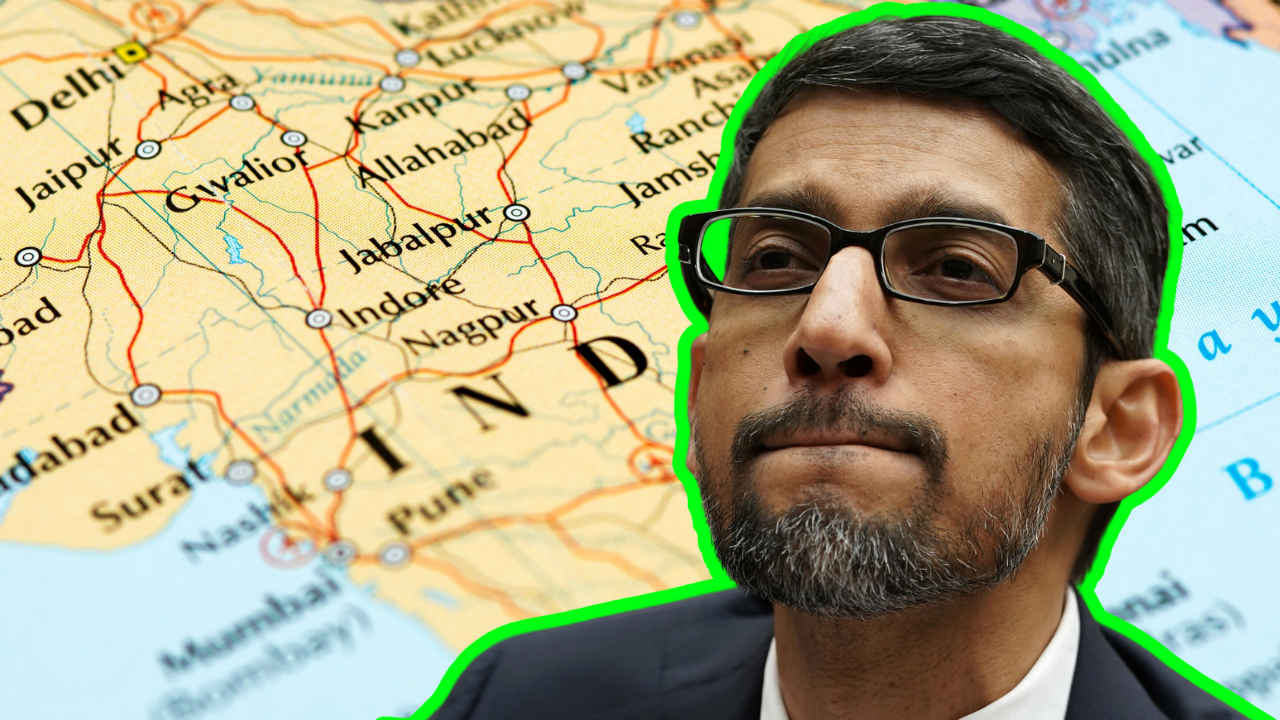Google’s antitrust cases in India: A brief history

Last week’s US federal court’s verdict in the antitrust case against Google, where it labelled the search engine giant an “unfair monopoly”, isn’t the end of its legal troubles. Not by a long shot. Because even here in India, Google has come under increased legal scrutiny, with India’s proposed antitrust law – Draft Competition Bill.
Also read: Google ruled an illegal monopoly: Impact on future of Search and Big Tech
India’s close to enacting two landmark laws which will have a big impact on Big Tech companies like Google. The Digital Personal Data Protection Act (DPDP Act) and the Digital Competition Law: where the former sets rules for how companies can collect, use and store user data, the latter aims to create a level playing field for online businesses by stopping big companies from over-exerting and abusing their power. Both laws are still in their draft stages, and all the heat Google’s facing in India comes under the ambit of India’s Draft Competition Bill.
ADIF’s lawsuit against Google for anti-competitive behaviour
The Alliance of Digital India Foundation (ADIF), an industry body representing India’s startup and app developers ecosystem, filed an official complaint against Google with the Competition Commission of India (CCI). The complaint alleged Google of anti-competitive practices in online advertising and online search, claiming Google’s exploiting its dominant market position (in other words, being a monopoly) in the Indian online search and online display advertising market. The lawsuit was filed on August 5th here in India, on the same day of Google’s US antitrust case verdict.

Google’s dominant position in the online advertising market, driven by its search engine supremacy, where 97% of its revenue is generated by advertising, has led to anti-competitive practices where Google protects its own interest above others – a pattern of behaviour that is stifling competition and negatively affecting Indian businesses, alleges the ADIF complaint to CCI. according to a Business Standard report.
ADIF further claims that Google’s ad-ranking system, which uses a bidding process, is opaque and ultimately favours Google itself. “Google allows competitors to bid on trademarked keywords, leading to a bidding war that ultimately benefits Google at the expense of advertisers and trademark owners,” according to the complaint.
Google vs CCI: An ongoing legal battle
Apart from the ADIF complaint of August 2024, Google has had multiple transgressions with CCI – which, among other things, makes recommendations to the Indian Central Government on issues related to competition policy and law. On its part, CCI has taken a strong stance against Google’s alleged anti-competitive behaviour, imposing significant penalties on the search engine giant which also enjoys a dominant market share in mobile phone operating systems in India (Android occupies over 95% of space in terms of smartphone operating systems in India, according to a Statista study).
In October 2022, Google was alleged of abusing its dominant position in the Google Play Store and app billing system for Android apps, according to an Economic Times report. In this case, the CCI tried to send a message to Google by imposing a penalty of ₹936.44 for anti-competitive practices in the Play Store and app billing ecosystem. Furthermore, CCI directed Google to give app developers more choice, and allow them the option for a third-party payment system – that they shouldn’t be forced to use Google’s own billing system.
Also read: Google loses bid to block Android antitrust ruling, will now cooperate with Indian authorities

Earlier in the same month, in October 2022, CCI had issued a different antitrust order against Google. CCI had found Google guilty of imposing unfair market conditions on Original Equipment Manufacturers (OEMs) by bundling Google’s own apps and forcing smartphone OEMs to pre-install them on devices. Following a fine of ₹1,337.76 crore, CCI directed Google to cease and desist from its unfair business practices, according to a report in The Hindu. Google appealed against the CCI verdict, but in March 2023 The National Company Law Appellate Tribunal (NCLAT) upheld the ₹1,337.76 crore penalty imposed on Google by the CCI for abusing its dominant position in the Android marketplace, asking Google to pay the penalty amount within 30 days.
Is India’s Draft Digital Competition Bill the solution?
Of course, it’s not just Google that has attracted CCI’s continued ire – other big tech players like Amazon, Apple and Meta continue to be in the Indian regulator’s firing line. And recognising the rising number of run-ins with big tech giants, increased demands from homegrown startups for a level playing field, India’s proposing its own version of the EU’s Digital Markets Act 2022, dubbed the Digital Competition Bill (DCB) 2024, which will aim to curb some – if not all – of the marketplace violation tendencies of big technology companies.
Still in its draft stage, India’s Digital Competition Bill 2024 also identifies ‘Systemically Significant Digital Enterprises’ (SSDEs) based on their overall revenue, installed and active user base, and total market dominance, and thereby imposing specific obligations on them, according to a Bar and Bench report. These include preventing self-preferencing, ensuring fair dealings with third-party businesses, and prohibiting anti-competitive practices like tying and bundling of services.
Also read: Google will be making serious changes to the way Android operates

By preventing tech giants from abusing their dominant positions, this law will open doors for smaller Indian online players to compete fairly. End users and consumers, too, will stand to benefit as a result – from increased choices, lower prices, and better quality services, as the bill aims to boost competition within India’s digital ecosystem.
Google India to appoint top legal counsel
According to Reuters, Bijoya Roy, the legal head of Pernod Ricard India, has resigned to join Google as its top India counsel starting in November 2024. Roy’s move to Google is noteworthy to say the least, and with no official confirmation from the company, it allows some room for speculation that maybe the search engine giant’s preparing its next set of moves to navigate the incoming Digital Competition Bill in India. Something tells me we haven’t heard the last of Google vs CCI just yet. What do you think?
Jayesh Shinde
Executive Editor at Digit. Technology journalist since Jan 2008, with stints at Indiatimes.com and PCWorld.in. Enthusiastic dad, reluctant traveler, weekend gamer, LOTR nerd, pseudo bon vivant. View Full Profile





